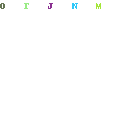Beni Rugs are handwoven Moroccan rugs, primarily crafted by the Beni Ourain tribe, a Berber group residing in the Atlas Mountains of Morocco. These rugs are highly regarded for their high-quality wool, minimalist designs, and cultural significance. The history of Beni Rugs is deeply intertwined with the traditions and lifestyles of the Berber people, and their timeless appeal has made them highly coveted around the world.
Origins and Cultural Heritage
Beni Rugs have a rich history that spans centuries. The Beni Ourain tribe, known for their skill in weaving, traditionally created these rugs for practical purposes—mainly for warmth and protection against the cold weather in the Atlas Mountains. They used wool from indigenous sheep, which was spun by hand and woven into thick, durable rugs. Over time, these functional pieces evolved into decorative items that symbolized various aspects of Berber culture, including beni rugs spirituality, family, and the natural world.
The intricate patterns and symbols found in Beni Rugs often reflect the personal stories of the weavers, including references to nature, fertility, protection, and spiritual beliefs. The process of weaving these rugs was primarily done by women in the tribe, and it remains a highly regarded art form today.
Design and Aesthetic
The design of Beni Rugs is minimalist, making them distinct from the more vibrant, intricate Moroccan rugs typically seen in the marketplace. They are often made with neutral tones, including ivory, beige, and brown, which gives them a calm, earthy aesthetic. The designs themselves are often geometric, featuring shapes like diamonds, zigzags, and lines, which can be interpreted as representations of nature, protection, and family ties.
The simplicity of Beni Rugs has made them a versatile choice for modern interior design. Their understated elegance means they blend seamlessly with a variety of decor styles, from contemporary and minimalist to rustic and bohemian. Whether they are used to anchor a modern living room or add warmth and texture to a bedroom, Beni Rugs remain a symbol of timeless design.
Materials and Craftsmanship
The materials used in creating Beni Rugs are another reason for their high value and desirability. The wool used is sourced from indigenous sheep that roam the Atlas Mountains, producing exceptionally soft and durable wool. The wool is hand-spun and dyed using natural dyes, which contributes to the rug’s organic and earthy texture. This method of production ensures each rug is unique, with slight variations in texture and color.
The craftsmanship involved in making a Beni Rug is also worth noting. Each rug is handwoven, with weavers carefully tying each knot. This painstaking process can take weeks or even months, depending on the size and complexity of the rug. The results are luxurious, soft, and incredibly durable rugs that are not only visually appealing but also functional, providing insulation and comfort underfoot.
Versatility and Functionality
Beni Rugs are prized for their versatility and functionality. The high-quality wool provides natural insulation, making these rugs perfect for colder climates. Their thick, soft pile makes them incredibly comfortable underfoot, while the neutral colors and geometric patterns allow them to complement virtually any interior style.
Their simplicity also means they can be used in a wide range of settings, from modern, minimalist homes to eclectic bohemian interiors. The neutral tones and clean designs make them easy to pair with various furniture styles, and they serve as a statement piece or as a subtle complement to the room’s decor.
Global Appeal
In recent years, Beni Rugs have gained significant popularity in the global interior design market. As people have become more interested in handmade, sustainable, and ethically sourced products, Beni Rugs have emerged as a symbol of craftsmanship and cultural heritage. These rugs are highly sought after for their beauty, history, and the artisanal quality behind them.
Interior designers and homeowners alike appreciate the uniqueness and timeless appeal of Beni Rugs. Their versatility makes them perfect for a variety of design schemes, while their connection to Berber culture adds an element of authenticity and storytelling to the home.
Conclusion
Beni Rugs are not just decorative items, but meaningful pieces of art that carry the traditions and stories of the Beni Ourain people. With their soft wool, minimalist designs, and cultural significance, these rugs offer both aesthetic beauty and functional benefits. Their enduring popularity in the world of interior design speaks to their timeless appeal, and owning one of these rugs means owning a piece of history, craftsmanship, and authentic artistry.
